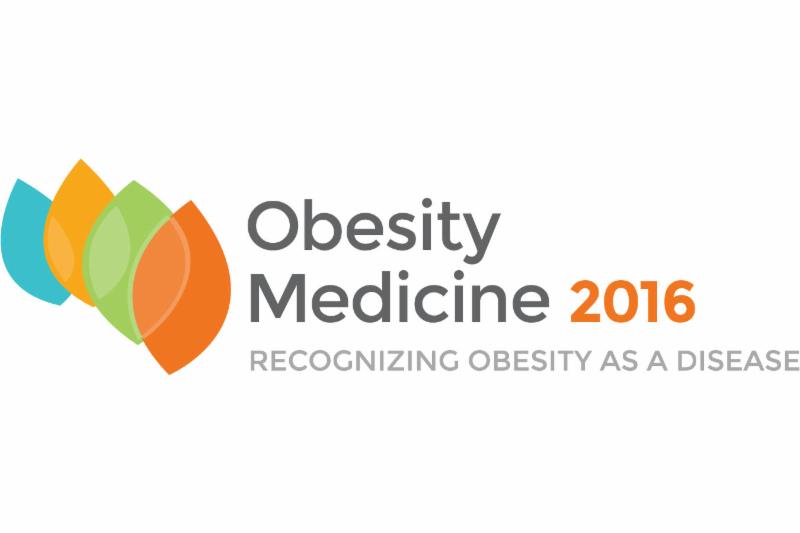 Obesity Algorithm® downloaded by hundreds in first week
In the first week of its release, the 2016 version of the Obesity Algorithm has been downloaded by nearly 600 health care professionals! The 2016 Obesity Algorithm was recently updated to reflect the latest information about treating patients affected by obesity, which includes the expansion of the nutrition and bariatric surgery sections. If you haven't already, download your free copy of the Obesity Algorithm online now. The algorithm is an excellent resource for those seeking comprehensive obesity treatment information, training residents and staff members about treating obesity, and studying for the American Board of Obesity Medicine (ABOM) certification exam. |
ABOM announces new recertification requirements
In a letter from ABOM chairman, Dr. Louis Aronne, released yesterday, ABOM announced its decision to "lengthen the term of certification for all ABOM diplomates from seven years to 10 years. All current diplomates will receive a three-year extension and will be issued a new diploma with an updated expiration date. In addition, the requirement for recertification will now include 120 hours of AMA PRA Category 1 CME on obesity-specific topics, which can be completed during live meetings or through at-home study over the 10-year period." Read the full letter from Dr. Aronne, or learn more about recertification requirements.
|
 Explore San Francisco when you attend Obesity Medicine 2016
Obesity Medicine 2016, OMA's spring conference, takes place this year in a spectacular location -- San Francisco, where there's plenty to do and see. All conference events take place at the Hyatt Regency San Francisco, which is situated on the Embarcadero waterfront across from the historic ferry building. From the hotel, enjoy immediate access to walking paths along the water, Fisherman's Wharf, Chinatown, Union Square, the ferry to Alcatraz, and cable cars that travel throughout the rest of the city. Reserve your spot now: register for Obesity Medicine 2016 and book your room at the Hyatt Regency. |
 |
The efficacy and safety of liraglutide 3.0 mg for weight management are similar across races: Subgroup analysis across SCALE and phase-two randomized trials
Ard, J., et al. Diabetes, Obesity and Metabolism, 2016.
The possibility that liraglutide 3.0 milligram (mg) may have different effects in various racial groups was tested in a subgroup analysis of the SCALE study using five double-blind, randomized, placebo-controlled trials. Included in the trials (n=5325) were adults with a BMI ≥ 27 kg/m2 with more than one comorbidity and adults with a BMI ≥ 30 kg/m2 who identified as either White, Black/African-American, Asian, or other. The analysis found that liraglutide 3.0 mg caused significant weight loss in all groups compared to placebo:
- White: 7.7% with liraglutide 3.0 mg compared to 2.3% with placebo
- Black/African-American: 6.3% with liraglutide 3.0 mg compared to 1.4% with placebo
- Asian: 6.3% with liraglutide 3.0 mg compared to 2.5% with placebo
- Other: 7.3% with liraglutide 3.0 mg compared to 0.49% with placebo
Race had no impact on treatment effects of weight and cardiovascular risk markers or adverse events. These data suggest that liraglutide 3.0 mg might be expected to produce similar results in patients of all races. View article
|
Effects of low-carbohydrate diets versus low-fat diets on body weight and cardiovascular risk factors: A meta-analysis of randomised controlled trials
Mansoor, N., et al. British Journal of Nutrition, 2016.
A meta-analysis of randomized controlled trials (RCTs) was conducted to assess the effects of low-carbohydrate (LC) diets versus low-fat (LF) diets on weight loss and risk factors of cardiovascular disease. Studies were included if: it was an RCT; the LC diet was the Atkins diet, or carbohydrate intake was less than 20 percent of total calorie intake; there were 20 or more subjects per group; the subjects were previously healthy; and the dietary intervention lasted at least six months. The analysis included 11 RCTs with 1,369 participants and showed that compared to participants on LF diets, participants on LC diets had a greater reduction in body weight and triglycerides (TG) and a greater increase in HDL and LDL cholesterol. The authors concluded that the beneficial changes of LC diets on weight, HDL cholesterol, and TG must be weighed against the possible detrimental effects of increased LDL cholesterol. View article
|
The relationship between alcohol use and weight loss in the context of behavioral weight-loss treatment
Kase, C. A., et al. Appetite, 2016.
It is often recommended that individuals reduce alcohol intake when attempting to lose weight; however, little research has been done to examine whether individuals actually decrease their alcohol intake or whether reduced alcohol intake relates to weight loss. A study was conducted to examine the relationship between alcohol use and energy intake and weight loss. The study found that participants who consumed alcohol at the outset of the study significantly reduced their alcohol intake by the end of the study period. Alcohol use did not relate to weight at baseline or at the end of the study period, and change in alcohol use was unrelated to change in weight overall. However, behavioral impulsivity and change in alcohol intake interacted to predict weight loss, where decreases in alcohol intake were associated with greater percent weight loss in participants with higher levels of impulsivity. The authors suggest that highly impulsive individuals may benefit from reducing alcohol intake during a behavioral weight-loss treatment. View article
|
|
|
*These events are hosted by organizations other than OMA. Contact the organization directly for details.
|
|
Executive Director
Sponsorships and Exhibits Manager
Operations Manager
Education Coordinator
Communication Manager
Executive Director of the Obesity Treatment Foundation
|
|
101 University Blvd.,
Suite 330
Denver, CO 80206
|
|
|
 There are only a few Obesity Medicine Basics courses left this winter. Don't miss your opportunity to either attend this introductory-level course or refer a colleague to attend and earn a $50 Amazon giftcard*. Obesity Medicine Basics is worth up to 7 CME/CE hours and provides introductory-level training about the evaluation and treatment of patients affected by obesity. Learn more about this course. Course dates and cities:*For every person you refer who attends an Obesity Medicine Basics course in any city and lists you as the person who referred them, you'll earn a $50 Amazon giftcard. |

This spring, we're headed to lively San Francisco for Obesity Medicine 2016, your leading resource for certification exam review and the premiere source of education about managing an obesity medicine clinic, nutrition, and the comprehensive approach to obesity treatment. Earn up to 30.5 CME/CE and attend the courses that most interest you!* While you're there, don't miss all that San Francisco has to offer. Take a trip to Alcatraz for a taste of history, walk along the waterfront or the Golden Gate Bridge, or visit one of the city's many cultural districts. |
Review Course for the ABOM Exam
13.25 CME/CE | April 6-7
Helps prepare those planning to take the American Board of Obesity Medicine (ABOM) certification exam.
| Practice Management Essentials
6.5 CME/CE | April 6
Explains the best business practices for running an obesity medicine clinic, from setting up a practice to boosting patient retention.
|
|
Nutrition Course
6.75 CME/CE | April 7
Outlines the latest evidence-based findings about nutrition and helps you select appropriate nutrition plans for your patients.
| Spring Obesity Summit
17.25 CME/CE | April 8-10
Addresses topics related to current and emerging research, evidence-based treatment approaches, technologies, and practical methods used by obesity medicine clinicians.
|
|
|
*The Review Course for the ABOM Exam runs concurrently with Practice Management Essentials on Wednesday and the Nutrition Course on Thursday. Registration for the Review Course includes two days of class time, and switching between courses is not allowed.
|
|
|
|
The Obesity Medicine Association and the Obesity Treatment Foundation thank our 2016 Corporate Advisory Council members for their continuous support.
|
© 2016 Obesity Medicine Association. All rights reserved. Materials may not be reproduced, redistributed or translated without written permission. Advertising disclaimer: Under a policy approved by the OMA executive committee and exhibitor/advertiser review committee, commercial companies may apply to advertise in OMA publications. Approval does not imply endorsement or official recognition of particular products or services.
|
|
|
|